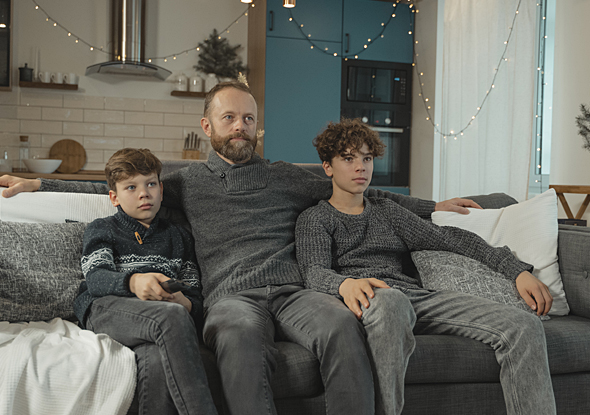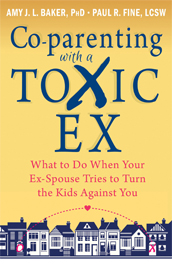Living Arrangements for Children Following Separation

- This blog contains affiliate links, which we may receive a commission for purchases. The decision is yours, whether or not you decide to buy.
The Children Act 1989 introduced the new concepts of residency and contact and also a “no order” presumption with the aim being that the court would not get involved, save in acrimonious cases, where parents could not agree the arrangements for themselves.
It soon became clear, particularly in acrimonious cases, that parents regarded residence orders as being important and things worth going to court for. The courts also became under increasing pressure to recognise the rights of fathers who wanted to continue to be involved in their children’s lives.
As a result there became a tendency for joint residence and shared residence orders to be made to recognise the importance of both parents in a child’s life. It is important to note that these orders did not necessarily mean the child’s time was spent equally with each parent.
In April 2014 the Children Act was amended and the legal concepts of residence and contact were replaced with child arrangements orders specifying when the children would live with each parent and, if living with one parent most of the time, when they would spend time with the other parent.
The “no order” presumption remained. It was hoped that these new style orders would make parents less proprietorial about their children and allow arrangements to be flexible and to adapt as the children’s needs changed.
In practice, however, there is still a minority of parents who are unable to agree the arrangements for their children. These parents both face potentially thousands of pounds on legal fees to ensure they remain involved in their children’s lives or in other cases as involved as they were pre-separation.
A lot of people assume that these cases are about the parent who has been out at work more during the relationship wanting to see, for example, the children mid-week, as well as at weekends.
The reality however is that it works both ways; a lot of “stay at home” parents (statistically more likely to be mothers) feel that, having been responsible for the mid-week arrangements, including the sole/main point of contact for the school, taking charge of out of school activities and doing the homework, that this should not alter.
Both parents often feel very sad that, due to the end of their relationship, they will spend less time with their children. Both of them feel that their views are justified and it can be hard to see the other person’s point of view.
Some parents feel that, following separation, the children should spend equal time with each parent, and this can include a range of arrangements from a week with one parent, then a week with the other, to one parent, for example, having Monday and Tuesday, the other Wednesday and Thursday, and then the weekends being alternated.
Where however one parent has, for example, due to commuting to work during the relationship, not seen much of the children mid-week, it can be very hard for the other parent to envisage this changing and as a result, their own involvement becoming less.
These parents often want a more traditional every other weekend arrangement. In my experience, if parents are able to co-parent successfully, communicate well and put the interests of the children first, any of the above arrangements can work very well.
It is when there is animosity that it is damaging to the children. If the children feel that their parents are being tactical or one or other is unhappy with whatever arrangements are in place, it is this that can be so damaging.
It can lead to parents being petty, for example a forgotten sports kit not being delivered to enable it to be where it is needed, or letters being read and the contents not communicated to the other parent who therefore misses out on seeing their child take part in a school/club event.
When speaking to adults whose parents separated when they were children I have found, without exception, that it is the way the parents manage their post-separation co-parenting and not the amount of time that children spend with each parent that dictates how the children feel about the separation.
If it is possible, try to put aside your personal differences and work together to come to arrangements, normally involving compromises for both of you, that put the children first and reduce the animosity, and therefore potential for resentment in the future. It really does make for happier children and easier relations going forward.
It can help to keep the end goal as having your children feeling comfortable about mum and dad being in the same room, whether this is at a parents’ evening, swimming gala or future wedding/grandchildren’s christening.
It is not always easy, but when things are difficult try and see things from the other parent’s point of view, particularly if he or she still harbours some resentment about why the marriage ended.
Finally, if you and your ex are finding it difficult to agree arrangements between you, then do think about discussing arrangements with a family counsellor or mediator who may be able to suggest other options, including the counsellor or mediator speaking to the children so that you both have feedback on how they feel about the arrangements and your relationship.
Written by Kirstie Law Solicitor, Collaborative Lawyer and Mediator at Thomson Snell & Passmore www.ts-p.co.uk
PHOTO CREDIT: TIMA MIROSHNICHENKO
You may also like
Books
Buy now from Amazon
Podcast
If you’re looking for some straight-up, positive advice on topics that affect your daily life, then check out The Sue Atkins Parenting Show. Each week Sue bare will discuss every possible aspect of your parenting challenges, from weaning to whining, boundaries round technology to stroppy teens. You’ll get practical tips, techniques and advice that really work- and it’s all totally free.
Articles
- 5 Ways To Parent With A Narcissist
- How To Be Great Parents Through Separation And Beyond
-
Divorce From A Child's Perspective
Videos
Practical advice and tips from professionals on what to do with issues and challenges around divorce from parenting to finance.
Events
Practical tips & advice designed to help people going through divorce, whether online or in person.
Useful links
Here's a selection of organistaioins from parenting to finance to help you with your divorce.
Legal professionals
Related Posts
-

Co-Parenting Across Distances in the UK: Practical Solutions for Separated Families
-

How to Create a Parenting Plan in the UK: Questions Parents Ask
-

Managing Children’s Screen Time in Shared Custody: A Practical Guide for UK Parents
-

Creating a Child-Centered Holiday Plan After Divorce: Minimising Stress and Maximising Joy
-

Successful Co-Parenting After Divorce: A Practical Guide for Separated Families


.jpg)

.jpg)



.jpg)

